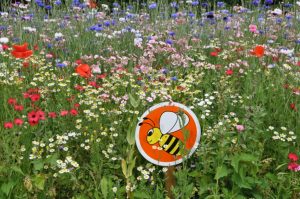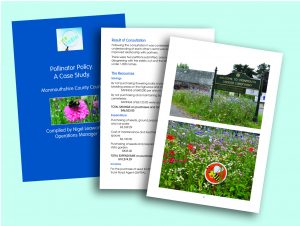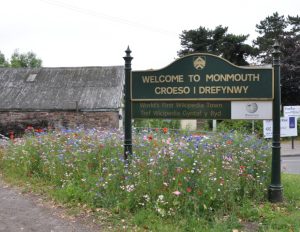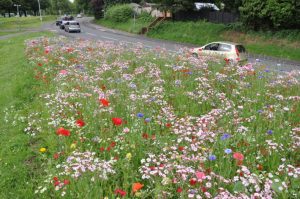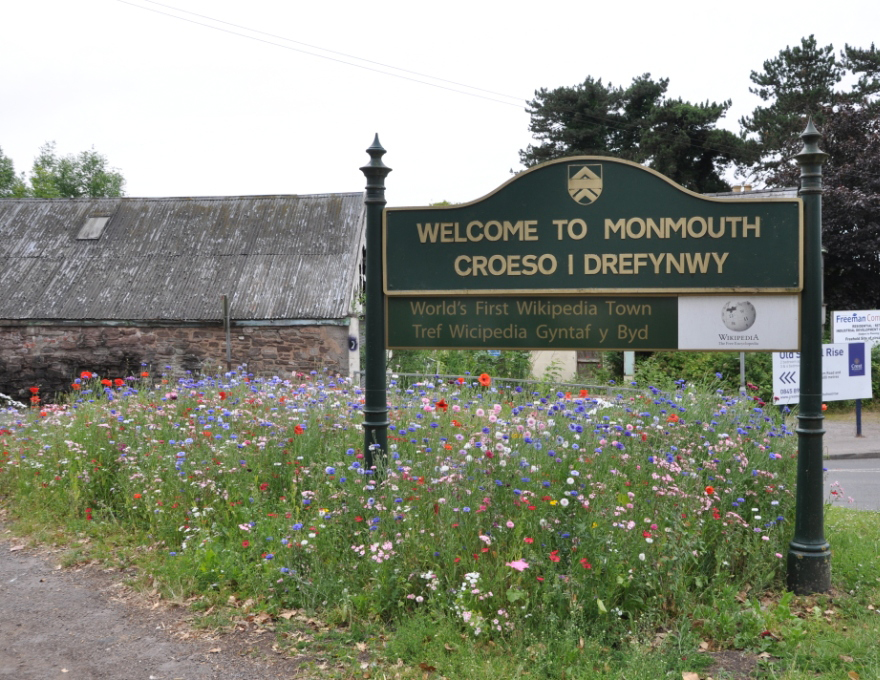
22 Nov Monmouthshire CC – Case study
MONMOUTHSHIRE County Council is winning plaudits from both the public and wildlife experts with outstanding results from Euroflor urban meadow flower mixes.
On arriving in Monmouthshire visitors see a bee symbol on welcome signs to indicate the work the council is doing to encourage pollinating insects and to acknowledge the recently introduced Pollinator Policy.
The displays of Euroflor urban flower seed mixes Tenor and Classic (perennial and annual) on roundabouts and roadsides have attracted hundreds of letters of praise from the public.
And the council’s efforts have won acclaim from the Welsh Government who have devised the Welsh Pollinator Action Plan to encourage a diverse range of flower planting to attract bees and insects in urban environments.
Nigel Leaworthy, operations manager for landscape and grounds maintenance, says: “We have been overwhelmed by the positive comments from the public, from other councils and from the media.
“We identified strategic locations where urban flower mixes would look best – roundabouts, housing estates, trunk roads and motorways – and determined that flower mixes would do away with 85 per cent of our annual bedding,” he says.
“We have also made adjustments within our highway verge mowing regimes and have sown Yellow Rattle seed throughout various areas of highway verges to encourage growth of native grasses”.
Yellow Rattle (Rhianthus Minor) is a parasitic flower that requires grass to grow and produces yellow flowers up to 30cm high from May to July. It is sown into short-mown grass in the autumn and early winter
“Even though we started our Euroflor sowing quite late this year, in February, the results have been fantastic,” says Nigel. “Our colleagues from the Countryside Unit, Monmouthshire Bees for Development, Bee Friendly Monmouthshire and Monmouthshire Meadows, plus members of the public, have noted the increase of pollinators within these floral sites.”
Other locations where the mixes are proving successful are Aneurin Bevin Health Trust hospitals, county police headquarters and Monmouth Housing Association – which council ground maintenance staff look after, providing two thirds of council income.
Around 70 local authority staff look after grounds maintenance. A third of the council’s income comes from managing roadsides and motorway verges for the highways authorities.
Monmouthshire has also received a “Thumbs up for Monmouthshire” from BBC’s Countryfile.
Nigel, who has been with Monmouthshire County Council since 1991 – and was previously with Gwent Council – is rightly proud of the efforts they have made in making the environment a brighter, more sustainable, nature-friendly one.
“When you hear the praise from the public and the media you know you are doing the right thing,” he says.
Howard Wood, Euroflor consultant for seed suppliers Rigby Taylor, says: “We are delighted that Nigel and his team have had such great results. It is very rewarding to get such great public feedback.”

